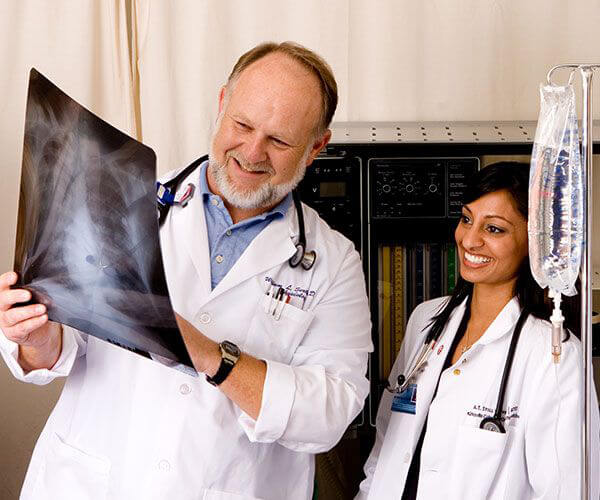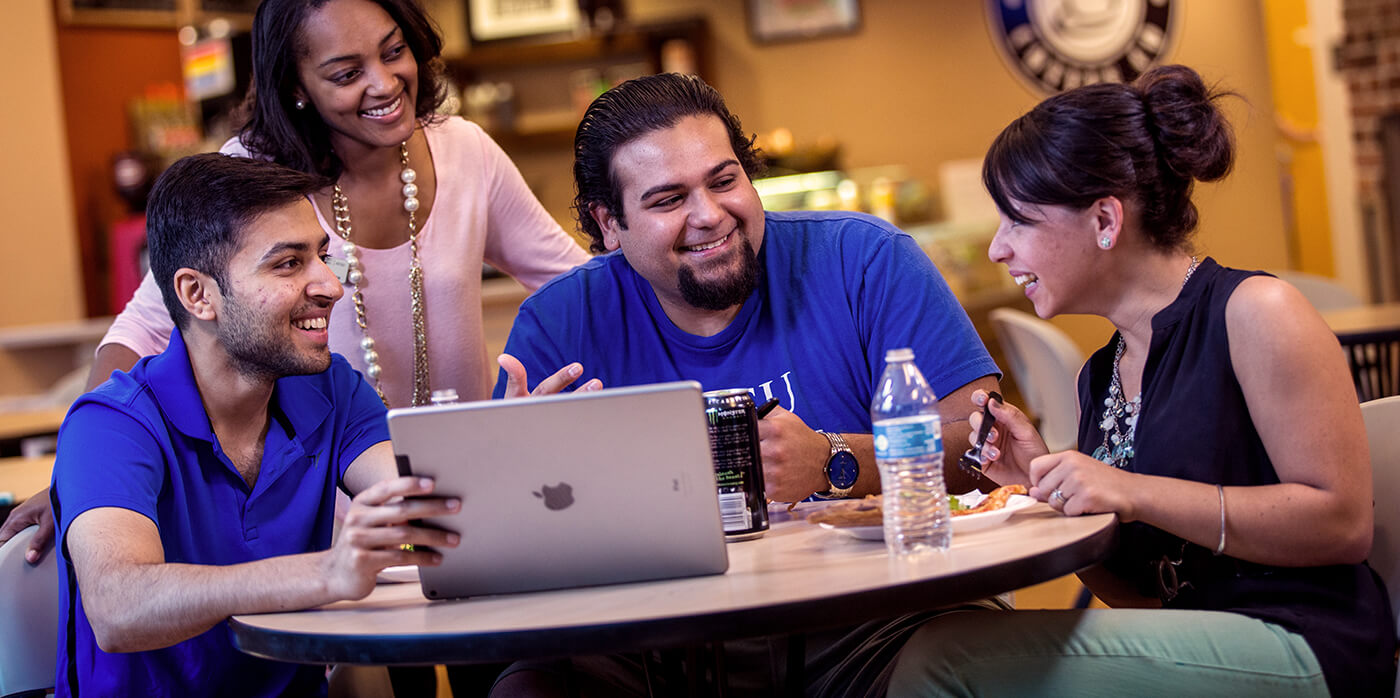Program Curriculum
A.T. Still University’s (ATSU) Central Coast Physician Assistant (CCPA) program is a 24-month, 105 credit Hour (CH) residential physician assistant program based in Santa Maria, CA. Students will spend one year on campus in Santa Maria, CA for the didactic phase of the program. Then, students will enter the clinical phase which includes supervised clinical practice experiences (SCPEs) that occur in locations across the United States. During the clinical phase, students will have clinical experiences in community health centers (CHCs) and/or in clinical settings that serve underserved in medicine populations and communities. The program awards a Master of Science degree to those who successfully complete all components of the curriculum.
Didactic Year Curriculum
There are a total of 61 credit hours in the didactic year curriculum. Didactic coursework includes classroom demonstrations, lectures, discussions, group case studies, and lab sessions. Students will work in large groups, small groups, and asynchronously. Most coursework (>50%) is conducted at the Santa Maria facility while a portion (<50%) of the curriculum is conducted either during live online sessions or independent asynchronous work. During the on-campus didactic year lab sessions that occur one full day each week, students learn and practice clinical procedures, history taking, and performing physical examinations. Standardized patients are utilized to give “real world” scenarios and exposure in the testing environment to best prepare students for clinical rotations.
During the Didactic Year, the CCPA Program uses an innovative approach to faculty instruction by employing experienced clinicians to teach remotely while keeping the program’s core design in-person. This method allows students to stay in a traditional classroom for most lectures, while also benefiting from a wider range of expert faculty. During remote lectures, a microphone system and a large screen enable seamless, direct interaction between the professor and students, encouraging collaboration and group work.
To ensure student success and provide mentorship, remote faculty members also visit campus on a rotating basis. This schedule guarantees a large part of each week’s instruction is delivered in person. Additionally, all didactic faculty are required to spend at least one full week on campus per academic term, ensuring they are consistently available to teach, mentor, and serve as professional role models.
Clinical Year Curriculum
There are a total of 44 credit hours in the clinical year curriculum. The clinical year exposes students to a breadth of clinical experiences across numerous patient populations, disciplines, and settings. Building on the principles introduced during the first 12 months, students will acquire and demonstrate competency in a broad base of applied clinical knowledge and skills, ranging from interpersonal skills of communication and cultural awareness, to psychomotor skills such as suturing, prescription writing, patient evaluation, and creation of a complete patient management plan. To ensure both breadth and depth of clinical exposure, the year consists of supervised clinical practice experiences (SCPEs) that include exposure to patient care in outpatient and inpatient settings. The program does not include international clinical experiences.
CCPA Program Courses and Credit Hours
| Term One- Didactic Year (14 Credit Hours) | |
| CCPA5001 Clinical Science I | 3 credit hours |
| CCPA5002 Clinical Medicine I | 4 credit hours |
| CCPA5040 Patient Assessment | 4 credit hours |
| CCPA5080 PA Professional Practice I | 3 credit hours |
| Term Two- Didactic Year (14 Credit Hours) | |
| CCPA5011 Clinical Science II | 3 credit hours |
| CCPA5012 Clinical Medicine II | 4 credit hours |
| CCPA5050 Patient Assessment II | 4 credit hours |
| CCPA5090 PA Professional Practice II | 3 credit hours |
| Term Three- Didactic Year (17 Credit Hours) | |
| CCPA5021 Clinical Science III | 3 credit hours |
| CCPA5022 Clinical Medicine III | 4 credit hours |
| CCPA5060 Patient Assessment III | 4 credit hours |
| CCPA5100 PA Professional Practice III | 3 credit hours |
| CCPA5025 Technical Skills & Preparation for Clinical Practice I | 3 credit hours |
| Term Four- Didactic Year (16 Credit Hours) | |
| CCPA5031 Clinical Science IV | 3 credit hours |
| CCPA5032 Clinical Medicine IV | 3 credit hours |
| CCPA5070 Patient Assessment IV | 4 credit hours |
| CCPA5110 PA Professional Practice IV | 3 credit hours |
| CCPA5035 Technical Skills & Preparation for Clinical Practice II | 3 credit hours |
| Clinical Year Courses Terms 5-8 (44 Credit Hours) | |
| CCPA6201 Community Medical Experience I | 5 credit hours |
| CCPA6202 Community Medical Experience II | 5 credit hours |
| CCPA6203 Community Medical Experience III | 5 credit hours |
| CCPA6204 Community Medical Experience IV | 5 credit hours |
| CCPA6205 Community Medical Experience V | 5 credit hours |
| CCPA6206 Community Medical Experience VI | 5 credit hours |
| CCPA6207 Community Medical Experience VII | 5 credit hours |
| CCPA6311 Transition to Practice | 2 credit hours |
| CCPA6312 Transition to Practice II | 4 credit hours |
| CCPA6100 Clinical Seminar I | 1 credit hour |
| CCPA6110 Clinical Seminar II | 1 credit hour |
| CCPA6120 Clinical Seminar III | 1 credit hour |
Supervised clinical practical experiences (SCPEs) will occur during each of the seven Community Medical Experience Courses, listed above. When students are completed with these courses they will have had SCPEs in all of the following medical disciplines:
- Women’s health
- Behavioral health
- Pediatrics
- Family medicine
- Internal medicine
- Emergency medicine
- Surgery

